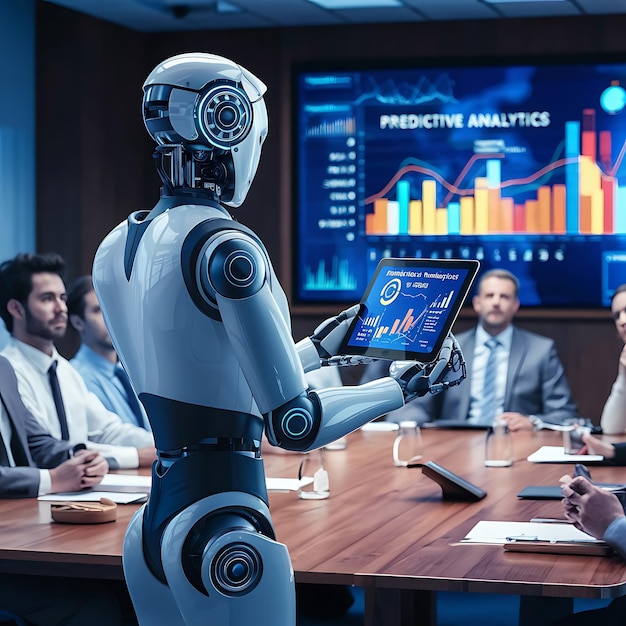
Artificial Intelligence (AI) is transforming various industries, and marketing is no exception. AI marketing leverages machine learning, data analysis, and automated decision-making processes to enhance marketing strategies, improve customer experiences, and drive business growth. This article explores the components, benefits, challenges, and future trends of AI marketing, highlighting its revolutionary impact on the digital landscape.
What Is AI Marketing?
AI marketing involves using AI technologies to analyze data, predict consumer behavior, personalize experiences, and optimize marketing efforts. By integrating AI into marketing strategies, businesses can achieve greater precision, efficiency, and effectiveness in their campaigns.
Key Components of AI Marketing
- Data Analysis and Insights: AI can process vast amounts of data at high speeds, uncovering patterns and insights that are beyond human capability. This helps marketers understand customer preferences, behavior, and trends, enabling data-driven decision-making.
- Personalization: AI algorithms can analyze individual customer data to deliver personalized experiences. From product recommendations to tailored content, personalization enhances customer satisfaction and engagement.
- Chatbots and Virtual Assistants: AI-powered chatbots and virtual assistants provide instant, 24/7 customer support, handling inquiries, and resolving issues efficiently. They improve customer service while freeing up human resources for more complex tasks.
- Predictive Analytics: AI uses historical data to predict future trends and behaviors. This allows marketers to anticipate customer needs, optimize inventory, and plan more effective campaigns.
- Automated Content Creation: AI tools can generate content, such as product descriptions, social media posts, and even news articles. This automation saves time and ensures a consistent content output.
- Programmatic Advertising: AI automates the buying and selling of digital advertising space. It uses real-time data to target the right audience with the right message at the right time, maximizing ad spend efficiency.
Benefits of AI Marketing
- Enhanced Efficiency: AI automates repetitive tasks, such as data entry, analysis, and reporting, allowing marketers to focus on strategic planning and creative development.
- Improved Accuracy: AI reduces human error by relying on data and algorithms to make decisions. This leads to more accurate targeting, segmentation, and personalization.
- Cost Savings: By optimizing ad spend and automating tasks, AI can significantly reduce marketing costs. Programmatic advertising, for example, ensures that every dollar spent reaches the most relevant audience.
- Better Customer Experiences: Personalized interactions and prompt customer service enhance the overall customer experience, fostering loyalty and increasing retention rates.
- Scalability: AI marketing solutions can easily scale to handle growing amounts of data and customer interactions, making them suitable for businesses of all sizes.
Challenges of AI Marketing
- Data Privacy and Security: Handling large volumes of customer data raises concerns about privacy and security. Businesses must ensure compliance with data protection regulations and implement robust security measures.
- High Implementation Costs: Integrating AI into marketing strategies can require significant upfront investment in technology and expertise. However, the long-term benefits often outweigh the initial costs.
- Complexity: AI technologies can be complex to implement and manage. Businesses need skilled professionals to develop, deploy, and maintain AI systems effectively.
- Ethical Considerations: The use of AI in marketing raises ethical questions, such as the potential for biased algorithms and the impact on employment. Businesses must navigate these issues responsibly.
Future Trends in AI Marketing
- Hyper-Personalization: AI will continue to refine its ability to deliver hyper-personalized experiences, using real-time data to adapt to individual customer needs and preferences.
- Voice and Visual Search: As voice and visual search technologies gain popularity, AI will play a crucial role in optimizing content for these new search methods, enhancing SEO strategies.
- Emotion AI: AI will increasingly be able to detect and respond to human emotions, allowing for more empathetic and engaging customer interactions.
- AI-Driven Content: Advanced AI algorithms will create more sophisticated and contextually relevant content, pushing the boundaries of automated content generation.
- Integration with IoT: AI will integrate with the Internet of Things (IoT) to provide seamless, omnichannel customer experiences. For example, AI could use data from smart devices to personalize marketing messages further.
Conclusion
AI marketing is revolutionizing the way businesses approach their marketing strategies. By leveraging AI technologies, companies can enhance efficiency, improve accuracy, and deliver personalized experiences that drive customer satisfaction and business growth. While challenges such as data privacy and implementation costs exist, the benefits of AI marketing far outweigh the drawbacks. As AI continues to evolve, its impact on marketing will only grow, shaping the future of the digital landscape in unprecedented ways.







